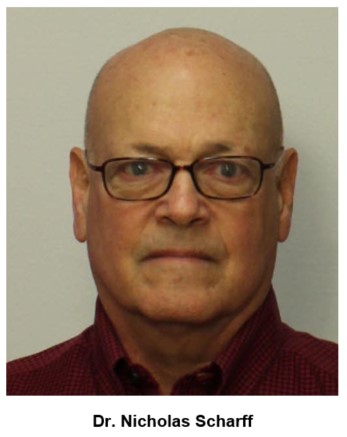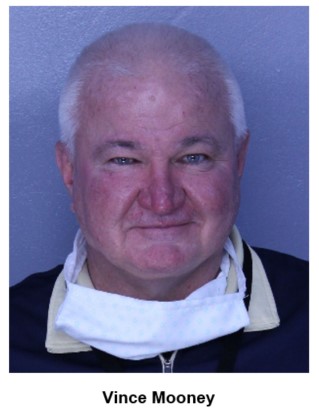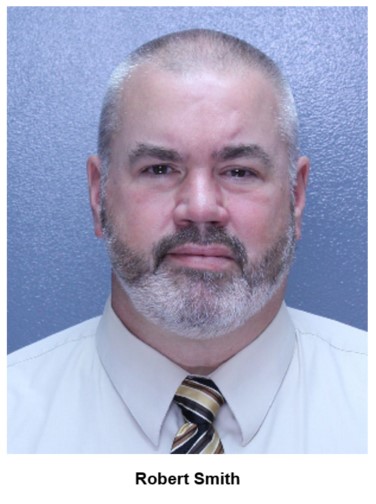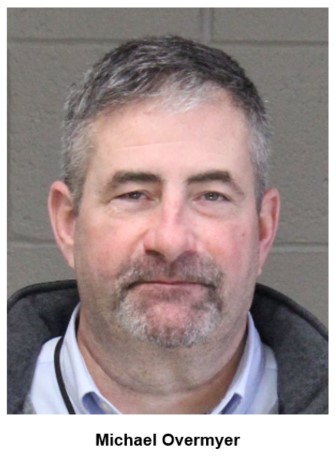Dedication and commitment don't simply end when a person retires, and COVID-19 has shown the Pennsylvania Department of Corrections (DOC) that both recent and long-time retirees continue to show their dedication by returning to work to help the agency through a pandemic.
Managing COVID-19, especially during the early onset, was challenging for corrections officials. They were all working around-the-clock to deal with an invisible and highly-contagious virus in ways that were not considered normal for the field of corrections.
Those ways included enforcing social distancing in a prison setting for both inmates and employees; implementing and adjusting already-existing pandemic plans to include employee and inmate screening and testing; transforming gymnasiums and warehouses into infirmaries and quarantine housing units; requiring employees and inmates to wear masks; and establishing return-to-work protocol in line with recommendations from the state Department of Health and the Centers for Disease Control and Prevention.
Trying to help facilities manage the virus, which seemed to be ever-changing, DOC leaders decided to reach out to former DOC employees for assistance. They called upon people to serve similar functions as those performed when they were originally employed. Others were called upon because of their organizational skills, ability to successfully lead a project or because they had a medical background in addition to their corrections background.
Assistance was needed, and in order to be aggressive with their management of the virus, officials decided early on to ask interested retirees back as annuitants.
According to Commonwealth of Pennsylvania policy, retired individuals can return as paid annuitants for a period of 90 business days in one calendar year. However, this 90-day limit has been waived due to COVID-19.
 One of the first retirees brought back to work was Dr. Nick Scharff. Over email and phone calls, Dr. Scharff, who was the chief of clinical services for eight years before he retired in 2013, now serves DOC leaders as an expert consultant in public health issues. He participates in conference call meetings and provides direction to leaders about a variety of medical-related issues, specifically about testing, the wearing of masks, employee return to work issues, and isolation and quarantine issues. There are so many ways that he assists DOC leaders, that there is no way to list all of them in this article.
One of the first retirees brought back to work was Dr. Nick Scharff. Over email and phone calls, Dr. Scharff, who was the chief of clinical services for eight years before he retired in 2013, now serves DOC leaders as an expert consultant in public health issues. He participates in conference call meetings and provides direction to leaders about a variety of medical-related issues, specifically about testing, the wearing of masks, employee return to work issues, and isolation and quarantine issues. There are so many ways that he assists DOC leaders, that there is no way to list all of them in this article.
When asked what helped him to decide to return, Dr. Scharff said, "How could I not?"
When DOC officials decided to turn the soon-to-be-closed prison of SCI Retreat into a new commitment and parole violator return/reception facility, two former superintendents were called upon to manage that facility and its new mission. Vincent Mooney was the former SCI Retreat superintendent, who only recently retired in 2018. Mooney was joined by Robert Smith, also a former superintendent, having retired from SCI Muncy in 2018. Together, these men work to operate a prison with a new, never-before experienced mission: to safely receive new commitments from counties and parole violators while quarantining those individuals as cohorts upon reception.
 "The decision to go back to Retreat was relatively simple for me for two reasons," Mooney said. "One, I was already asked to help on another matter at SCI Mahanoy in February, so I was very familiar with the steps the department was taking to ensure the safety of both staff and inmates once this crisis began. Second, having only been retired from SCI Retreat for 15 months, I knew the staff there very well, and I knew no matter what was thrown at them they would respond in a remarkable way. What I witnessed upon my return was more than I could have ever imagined!"
"The decision to go back to Retreat was relatively simple for me for two reasons," Mooney said. "One, I was already asked to help on another matter at SCI Mahanoy in February, so I was very familiar with the steps the department was taking to ensure the safety of both staff and inmates once this crisis began. Second, having only been retired from SCI Retreat for 15 months, I knew the staff there very well, and I knew no matter what was thrown at them they would respond in a remarkable way. What I witnessed upon my return was more than I could have ever imagined!"
Mooney said that with Retreat employees' futures uncertain and the closure imminent, a mission was given -- a mission never-before assigned -- and they hit a home run.
"Superintendent Bernadette Mason, Deputy Charles Stetler, Deputy Laura Banta and Major Jeffrey Eyer assembled the Retreat Team, and they turned a closing facility into a new reception center to meet the goals of the mission set by Secretary Wetzel," Mooney said.
Mooney and Smith met the first week of their return to Retreat, and both agreed there was no need to fix something that is as close to perfect as it gets.
"I was humbled and honored when I was asked to come back on February 10, 2020, and when I was asked to help at Retreat, the thought of once again being part of history was very intriguing," Mooney added. "Don't be fooled, when you retire it is an amazing thing, and maybe the decision would have been more difficult had it been summer rather than winter, but being part of this team again is something I can't describe nor will I attempt to. The beginning of this venture certainly has a closer end date than when I initially started in the Bureau of Correction!"
 Robert Smith was brought back as an annuitant in February to manage the SCI Retreat closure process.
Robert Smith was brought back as an annuitant in February to manage the SCI Retreat closure process.
"I was working a very limited schedule getting inventories underway and staging areas identified and happened to be at Retreat when the secretary announced the prison's mission change," Smith said. "My assignment was put on hold, but a week later I was contacted and asked if I would be interested in assuming the superintendent's role due to several accelerated staff reassignments. Having had the opportunity to interact with many of the employees and observe the culture developed by Supt. Bernadette Mason, I accepted the change in assignment without hesitation."
Smith said that as the scope of the pandemic was expanding, he had pretty much decided to help in any capacity if needed by the department.
"The opportunity to again work with great people that excel under pressure and trying circumstances was a huge draw for me," Smith said. "I was, however, humbled with the role that was offered. There was a transition period getting re-acclimated to the pace and the adjustments to the unique mission here, but these were more easily managed working alongside of Supt. Mooney and the Retreat Team.
 Also returning to assist SCI Huntingdon during COVID-19 is Michael Overmyer, who retired as superintendent at SCI Forest in March 2019.
Also returning to assist SCI Huntingdon during COVID-19 is Michael Overmyer, who retired as superintendent at SCI Forest in March 2019.
"I came back because I really enjoyed the job and the great problem-solver people in the department," Overmyer said. "Fortunately, or unfortunately, I think we all trained our whole careers for a time like this."
Overmyer reported to SCI Huntingdon on May 7, and he says he's still "getting the lay of the land." At the prison – where he says he washes his hands a lot -- he will help the administration team with operations and security issues by providing a fresh set of eyes.
"There's obviously a lot of moving parts, and Huntingdon is definitely a unique facility with a storied history," he said.
Other retirees have returned to assist with reopening/demobilization planning efforts and critical incident duties as required. Former prison health care professionals also returned to provide assistance to employees who are becoming burned out by the never-ending work generated from dealing with COVID-19.
Some could argue that the reason people return to assist is simply because they are getting paid. Yes, it is true that they are getting paid as annuitants, but they didn't
have to agree to come back to long hours of complicated and complex work or to agree to work in facilities that are experiencing active COVID-19 cases.
No, they came back out of the goodness of their hearts because they care about the field of corrections and because they want to help the DOC during a difficult situation.
It is often said that times of crisis reveal an individual's character. The Pennsylvania Department of Corrections is blessed to have these individuals – true helpers -- return to serve the agency, its inmates and employees, and the commonwealth.